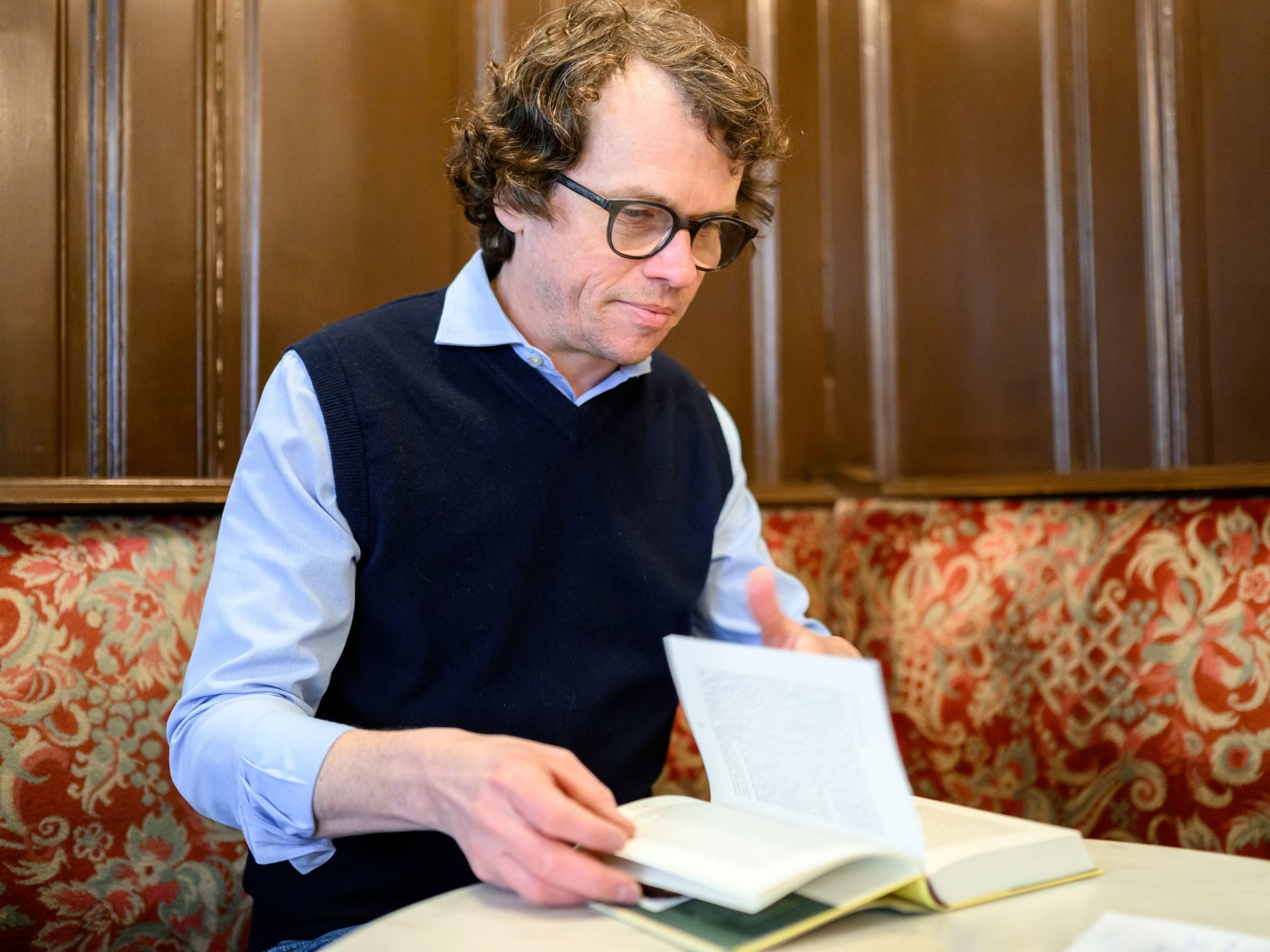Viennese Author Martin Prinz in Interview: "Era of Authentic Narratives is Coming to an End"

Born in 1973, the author would "never allow" himself to pick up and continue the narrative thread. "Today, we sit in front of the sources. Many of them are only now becoming accessible. This opens up a different layer of engagement."
In his novel "The Last Days," which will be released on Thursday, Prinz brings the protocols and witness statements of an Austrian People's Court trial from 1945-48 to life. He was first confronted with research on the horrors of the last days of the war around Reichenau in 2014, when the advance of the Red Army came to a halt and martial courts issued numerous death sentences. "Something must be made of this!" was the demand made of him. But what?
"What happens between reality and imagination? I believe that this question is addressed in each of my books," the author describes his general drive in writing during a conversation with the APA. "I try to delve into this in-between." It was not until 2023 that he began studying the files himself. "You then sit in front of thousands of pages. The trial was conducted with admirable meticulousness and rigor. The judge immediately took a break afterward, today we would call it burnout. By 1948, there was no longer such a great pressure from the occupying powers to conduct the trials with emphasis. Had it continued, Austria would certainly have become a different country. But it ended abruptly." Drawing a line and rebuilding together were more important than searching for perpetrators and coming to terms with the past.
Viennese Author Prinz: "One Could Quickly Write Something Bloodthirsty"
What happened in Schwarzau im Gebirge and Reichenau an der Rax in April 1945 belongs to the so-called end-phase crimes. The Nazi regime once again demonstrated its power with all severity. 29 murders were committed by the "Volkssturm Special Commando of the Neunkirchen District Leadership" and the martial courts appointed by District Leader Johann Braun. Even one day before the proclamation of the Republic of Austria, there were eight executions. "One could quickly write something bloodthirsty, exciting, and terrible," says Prinz. "But I don't think one should. I decided: I must capture the events through language."
The author focused on the language he encountered in the protocols. A language that names the guilty but wants to be guilty of nothing; a passive language that constantly circles around the actual matters in a movement of evasion; a "language of irresponsibility," as Prinz calls it. It is a language that he encounters again in the present. "This is also how remigration is talked about today. The way Kickl speaks, that's how the perpetrators speak. The way the sentences are constructed, the way the cynicism is formulated, it's the same. It's astonishing that in this otherwise so morally charged time, no one is alarmed that this language is resurfacing from the underground today."
Mechanisms of Dehumanization and Distancing
Especially in a time when simple solutions for complicated issues are being propagated, it is the task of literature to question and differentiate things. "It can do this best where it is at home: in language. Justice is blind. But it must not be deaf. It is not about reputation, but about listening." Only by uncovering contradictions can one distinguish between true and false, the author believes.
In the end, one recognizes the mechanisms of dehumanization and distancing, but for all the horrific deeds, one question remains unanswered: Why? "That is a black hole. It is incredibly nihilistic. It shows the meaninglessness: not mere revenge, not pure ideological terror, but a principle of randomness under which existential judgments are made." The ten-year engagement with the material has left deep marks on his psyche, the author recounts. The researched incidents haunted him in his dreams - "including my own execution."
US Remake of "The Robber"
Another subject also does not let him go: that of the bank robber, murderer, and marathon runner Johann Kastenberger, who entered criminal history as "Pumpgun Ronnie" because of his weapon and his Ronald Reagan mask. In 2002, Prinz took over his story for his debut novel "The Robber," which was filmed by Benjamin Heisenberg in 2009. One of the scenes was shot at the Vienna City Marathon - and the passionate long-distance runner Martin Prinz personally put lead actor Andreas Lust through his paces. "A remake is currently being prepared in the USA. When it is filmed there, I finally want to run my first New York Marathon." And the book is also getting a remake: In the fall, it is to be reissued in the anniversary program of Jung und Jung.
(The conversation was conducted by Wolfgang Huber-Lang/APA)
(APA/Red)
This article has been automatically translated, read the original article here.





